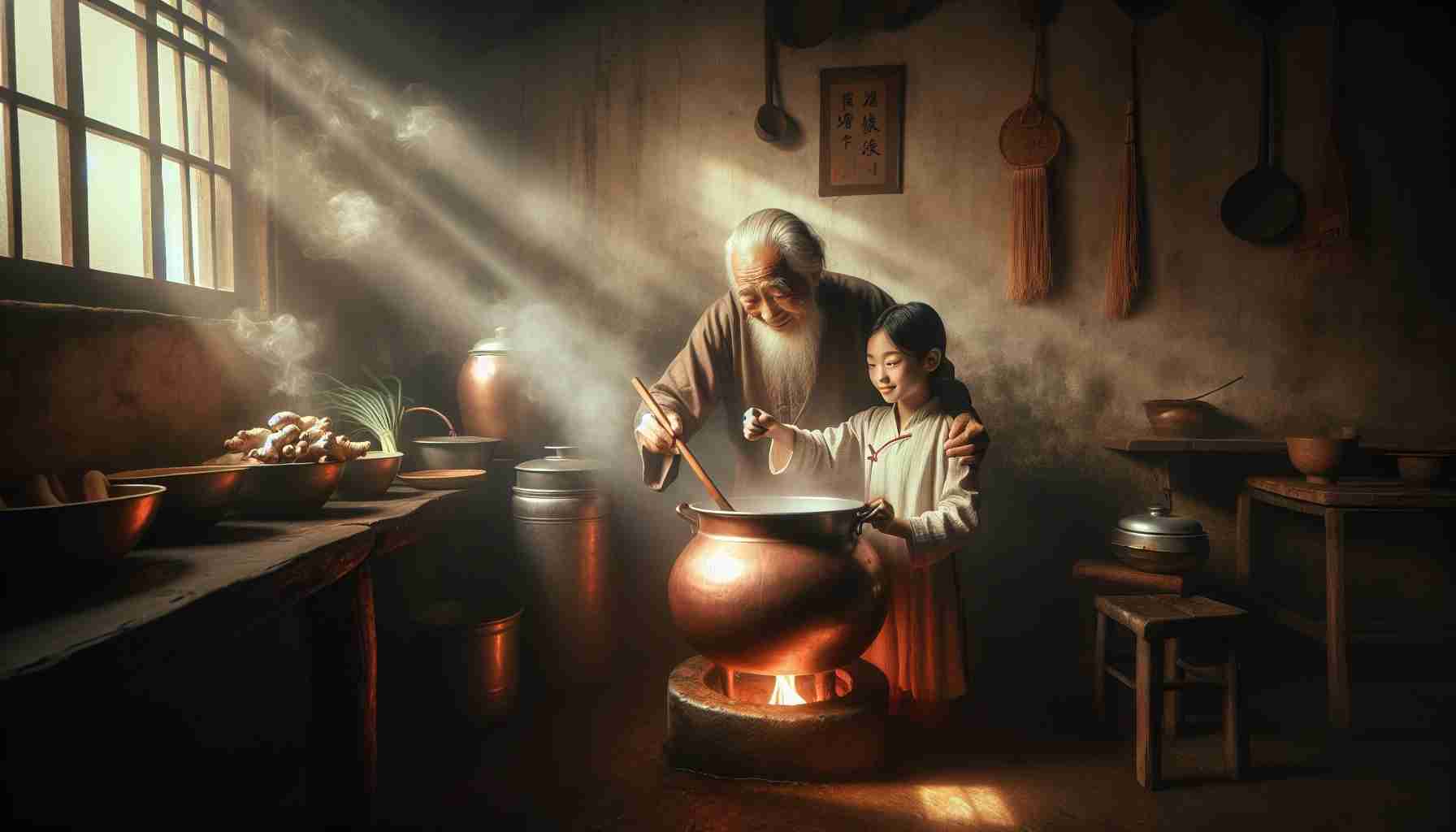

The soup boiled and popped in the big copper pot, sending steam curling toward the ceiling. My name is Mei, and I was twelve years old when I learned the most important lesson of my life—not from a book, but from a bowl of soup.
My grandfather, Old Li, ran a tiny food stall in the corner of our village. He wasn’t rich, and he never used fancy spices or secret sauces. People said his cooking was magic, though. Every day, they’d line up early just to sip his noodle soup. I asked him once, “Grandpa, what’s the secret?”
He just smiled and said, “The Tao of Cooking.” I didn’t understand.
“Is that an ingredient?” I asked, frowning.
“No, Mei,” he chuckled. “It’s The Way. You’ll feel it when it's time.”
I didn’t believe him. So I thought, if I could copy exactly what he did, maybe I could make the soup too. Early one morning, I woke up before the roosters and crept into the stall. I put water into the pot, lit the fire, and started adding things the way he usually did—bones, ginger, scallions. I tried to stir just like him.
But something was wrong.
The broth didn’t smell like Grandpa’s. It was all cloudy and sour. I panicked. What didn’t I do? I added more herbs, stirred faster, turned up the heat. Still, the soup just… tasted bad. I was so frustrated that I sat down and cried, wiping my eyes with my apron.
That’s when Grandpa walked in.
He didn’t scold me. He just sat cross-legged beside me and watched the pot boil.
“You tried very hard,” he said softly.
“I did everything right!” I sniffled. “I followed your steps!”
“You were busy doing,” he said. “But you weren’t cooking.”
I stared at him, confused.
He reached for a ladle and dipped it into the broth. He took a sip, then gently poured it out.
“Cooking is like walking the Tao, Mei,” he said. “It’s not about forcing things to happen. True flavor comes when water, heat, and ingredients come together at their own pace. We guide them. We don’t control them.”
Then he showed me, slowly—how to feel the warmth of the fire, to smell when the ginger softened, to stir only when the pot asked for it. This time, we didn’t rush. We worked quietly, letting everything do what it needed to.
By lunchtime, the soup was ready.
I tasted it and blinked in surprise. It was perfect.
That day, I didn’t just learn how to cook. I learned the power of Wu Wei—doing by not forcing. Letting life unfold.
Now, whenever I feel like I have to do more, push harder, I remember that pot of soup. I sit still. I breathe. And I wait.
Because the Tao can’t be rushed. And sometimes, the best things come when you stop trying so hard.
And in that quiet space… freedom lives.
The soup boiled and popped in the big copper pot, sending steam curling toward the ceiling. My name is Mei, and I was twelve years old when I learned the most important lesson of my life—not from a book, but from a bowl of soup.
My grandfather, Old Li, ran a tiny food stall in the corner of our village. He wasn’t rich, and he never used fancy spices or secret sauces. People said his cooking was magic, though. Every day, they’d line up early just to sip his noodle soup. I asked him once, “Grandpa, what’s the secret?”
He just smiled and said, “The Tao of Cooking.” I didn’t understand.
“Is that an ingredient?” I asked, frowning.
“No, Mei,” he chuckled. “It’s The Way. You’ll feel it when it's time.”
I didn’t believe him. So I thought, if I could copy exactly what he did, maybe I could make the soup too. Early one morning, I woke up before the roosters and crept into the stall. I put water into the pot, lit the fire, and started adding things the way he usually did—bones, ginger, scallions. I tried to stir just like him.
But something was wrong.
The broth didn’t smell like Grandpa’s. It was all cloudy and sour. I panicked. What didn’t I do? I added more herbs, stirred faster, turned up the heat. Still, the soup just… tasted bad. I was so frustrated that I sat down and cried, wiping my eyes with my apron.
That’s when Grandpa walked in.
He didn’t scold me. He just sat cross-legged beside me and watched the pot boil.
“You tried very hard,” he said softly.
“I did everything right!” I sniffled. “I followed your steps!”
“You were busy doing,” he said. “But you weren’t cooking.”
I stared at him, confused.
He reached for a ladle and dipped it into the broth. He took a sip, then gently poured it out.
“Cooking is like walking the Tao, Mei,” he said. “It’s not about forcing things to happen. True flavor comes when water, heat, and ingredients come together at their own pace. We guide them. We don’t control them.”
Then he showed me, slowly—how to feel the warmth of the fire, to smell when the ginger softened, to stir only when the pot asked for it. This time, we didn’t rush. We worked quietly, letting everything do what it needed to.
By lunchtime, the soup was ready.
I tasted it and blinked in surprise. It was perfect.
That day, I didn’t just learn how to cook. I learned the power of Wu Wei—doing by not forcing. Letting life unfold.
Now, whenever I feel like I have to do more, push harder, I remember that pot of soup. I sit still. I breathe. And I wait.
Because the Tao can’t be rushed. And sometimes, the best things come when you stop trying so hard.
And in that quiet space… freedom lives.